Tourism: Competitive Advantages
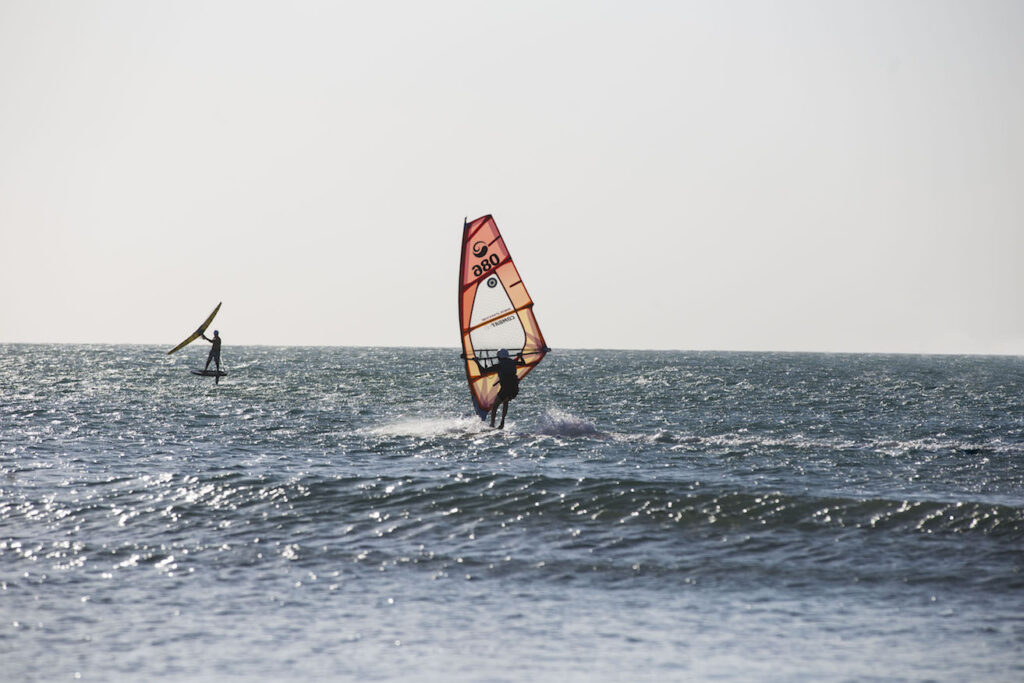
Tourism in Ceará is one of the great engines of the State's economy, an instrument of development, growth, and social transformation. After the pandemic crisis, the sector projects strong growth for the coming years. The success of the vaccination campaign made the sector grow 51.6% in 2022, an index that puts Ceará in third place among the Brazilian states with the best performance. Tourism in Ceará is responsible for about 11% of the Gross Domestic Product (GDP), besides generating many jobs in the service sector.
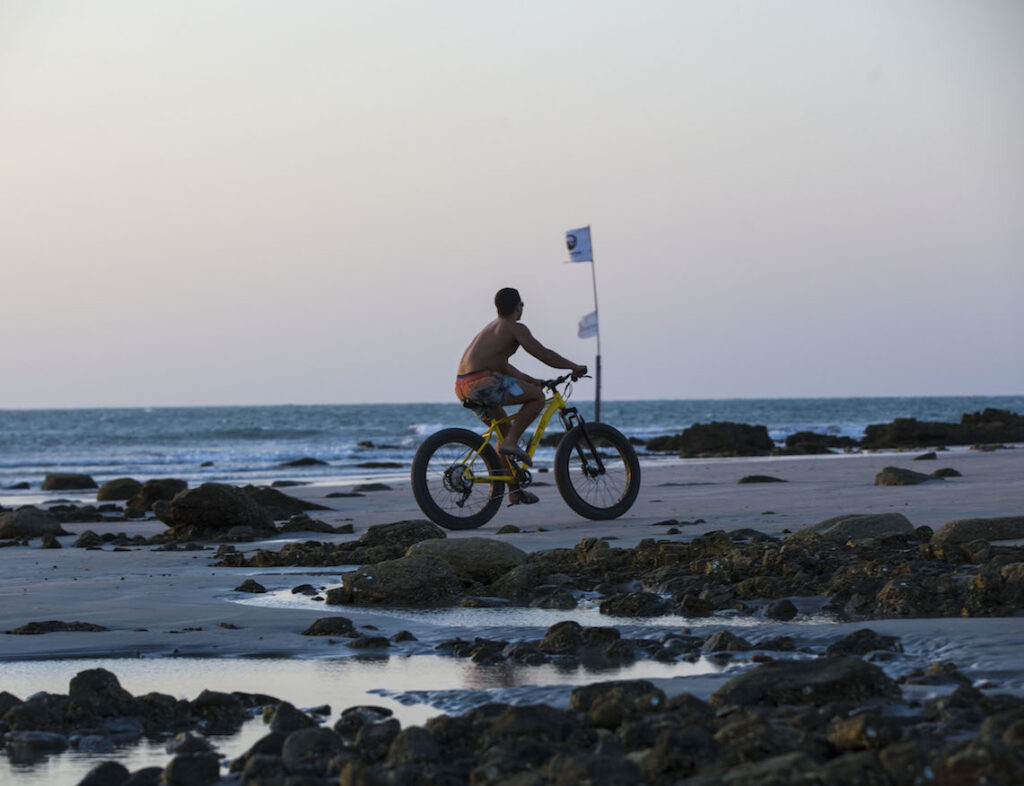
The sector's numbers have finally been equaled to the pre-pandemic ones, at least in relation to the tourists arriving from Brazil. In the international segment the recovery is a little slower, but it is happening. Internal tourism is seen as one of the solutions for the segment since the first months of the economic recovery, when tourists who used to travel abroad started investing in intercity and interstate travel.
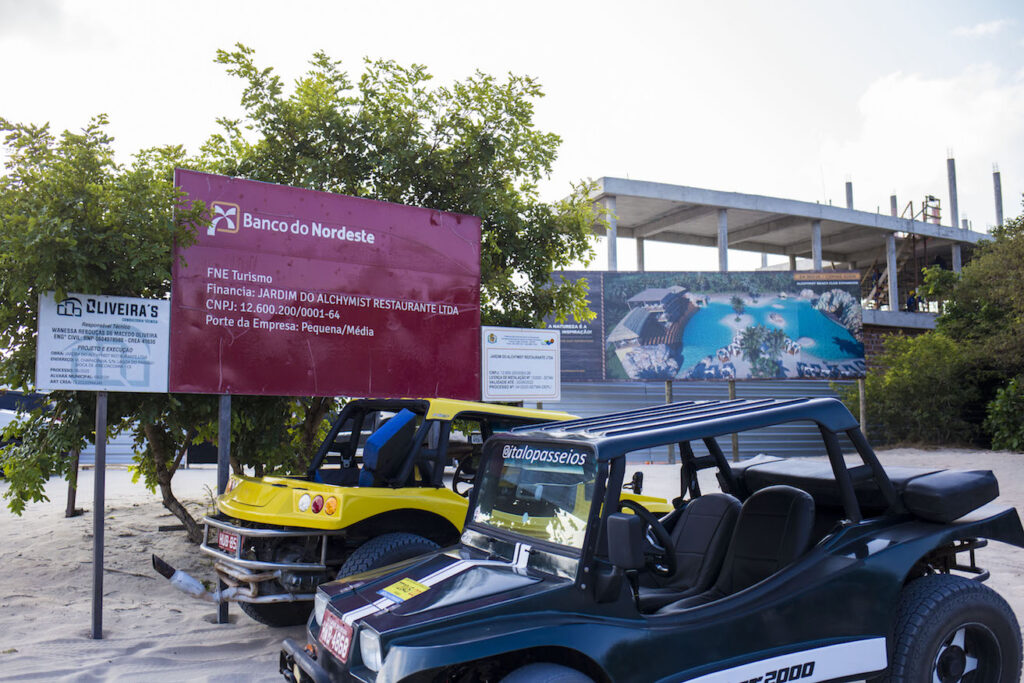
Ceará currently has incomparable competitive advantages in terms of tourism. Investments in infrastructure is one of them. The expansion of Fortaleza International Airport, managed by the German multinational Fraport, the attraction of an air hub, the implementation of regional airports, the ports of Mucuripe and Pecém and state highways reinforce the good conditions for receiving tourists.
Ceará's natural attractions play their part. The big star of the moment is Icaraí de Amontada, affectionately known as Icaraizinho, located in the District of Amontada, 200 km from Fortaleza. According to Roberto Cariri, Secretary of Tourism and Economic Development of Amontada, with the help of tourism, the municipality's budget went from 330 thousand Reals (about 62 thousand dollars) to 4.5 million Reals (about 850 thousand dollars) , in just two years. The world is watching Icaraí, which has 46 tourism investment projects, led by 10 different nationalities.
For example, alongside the hotel industry, more theme parks and the development of marine tourism appear in the range of options for those who are thinking of investing in tourism in Ceará. Marine tourism represents today almost 11% of Ceará's economy, an index that is growing above the national average (10%).
Tourist routes
Ceará's policy to continue consolidating the growth of Tourism is the bet in the tourist routes. Currently, five routes are highlighted, which benefit at least 32 cities in Ceará, from the coast, going through the mountains, until reaching the hinterland.
Besides the already consolidated Emotions Route, the Cliffs Route, the Coffee Route,, the Lookout Points Route of Ibiapaba and even the Cariri Route, according to the State Secretary of Tourism, make up the tourist menu of Ceará, reinforcing the expansion of the activity all over the State.
Among the main goals for the next years is to strengthen tourism in the State's countryside since Fortaleza is a consolidated destination in the national and international scenario. Some of the main points of attention are the strengthening of Cariri beyond religious tourism and the internationalization of Jericoacoara, besides partnerships with the municipal and federal governments.
Airports
The Fortaleza airport, managed by the German multinational Fraport, has been undergoing an expansion in recent years to meet the increase in passenger demand. The first works carried out after it took over the operations of the airport included the operational systems, lighting, bathrooms, wi-fi and signaling systems, and the expansion of the Passenger Terminal.
Now Fraport is planning the construction of the airport-city concept, which will be a large real estate complex with many investment opportunities around the passenger terminal. It contemplates 800 thousand square meters for a real estate complex with an area for two hotels, a logistics center, shopping mall and hypermarket.
The exclusive access via BR 116 will be for the area destined to the Logistics Center, as well as its connection to the Airport. The intention is to facilitate the logistics of goods distribution by land (central districts, metropolitan region, interior of the state, etc.) and by air (other states and countries). In the project portfolio, Fraport emphasizes that this is an excellent opportunity for the development of e-commerce, retail, logistics and light industry companies that seek agility in their operations and complete infrastructure, as well as the possibility of access to the airside (runway) of the airport.
Inaugurated in 2017, the Jericoacoara airport, located in the municipality of Cruz, 32 kilometers from Vila de Jericoacoara, was designed to strengthen one of the main activities that generate investments for the region. Lower costs and reduced travel time to reach the municipality are some of the benefits that operating the airport has brought to the area.
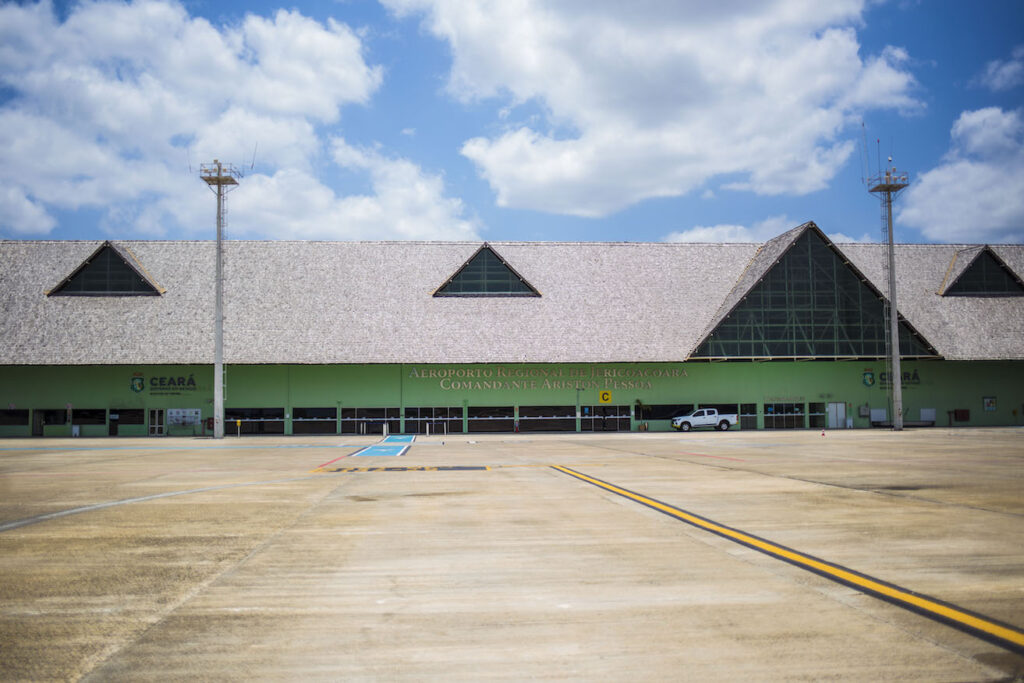
“From 2017 to today, the airport has grown a lot. The initial capacity of the enterprise was around 200 thousand passengers per year. It has been growing rapidly, even with a small reduction during the pandemic. The numbers are quite encouraging. In the first six months of operation, it processed 30,000 passengers between takeoffs and landings. In 2018, that number increased to 96,000, an increase of more than 50% over the previous period. In 2019, another increase, this time to 113 thousand. With the pandemic in 2020, the volume was around 56 thousand passengers. However, in 2021 there were 155 thousand passengers. Now, in 2022, until August, the airport has already transported 213,000 passengers. The initial capacity of more than 200,000 passengers a year has already been exceeded at this time of resumption of tourist movement", says Marcus Pacobahyba, manager of Airport Operations Programs at Jericoacoara Airport.
Icaraí de Amontada: Boom in Tourism and Agribusiness
One of the destinations that emerges in Ceará's tourism scene is Icaraí de Amontada, a district in the municipality of Amontada, affectionately known as Icaraizinho de Amontada, 200 km from Fortaleza. Its strong winds attract practitioners of water sports such as kitesurfing and windsurfing. "The value of this land was how many coconut trees were on it," says Roberto Cariri, Amontada's Secretary of Tourism and Economic Development. Today, coconuts continue to be an important activity in the region, but tourism has been growing as never before.
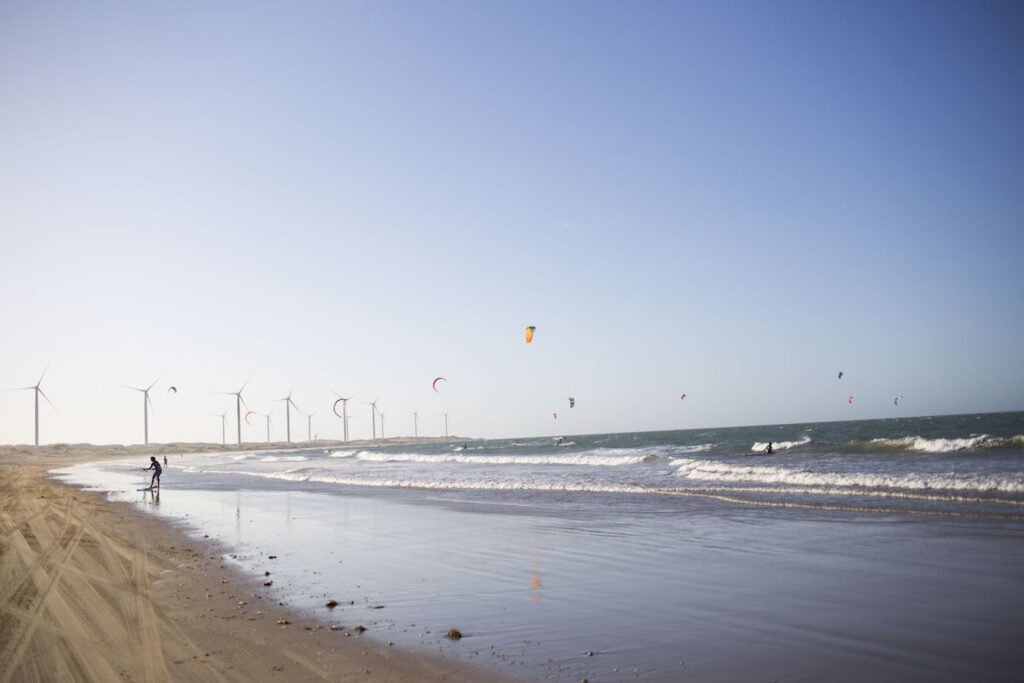
With 46 investments under construction, from 10 different nationalities, four of them valued at more than 400 million Reals (about 75 million dollars), Amontada, and more specifically Icaraizinho, is experiencing a growth boom in tourism thanks to a growth project that prioritized the construction of a governance that includes the local identity, with a strong popular participation, through associations, such as that of bars and restaurants, hotels, fishermen, a transport cooperative, and a series of tax incentives.
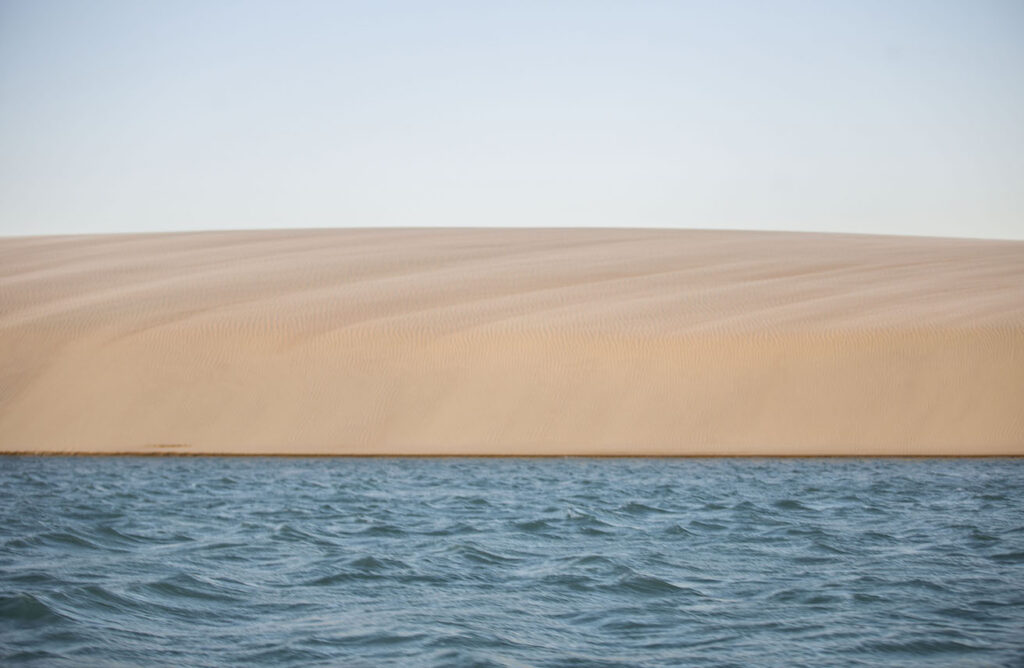
It is not difficult to fall in love with Icaraizinho. An idyllic landscape, with a beach of fine sand and blue sea, and the valued Atlantic wind that enters the continent. The district now has 208 accommodation points, including hotels, inns and vacation homes. In just under two years, Amontada's budget went from 330 thousand Reals (about 62 thousand dollars) to 4.5 million Reals (about 850 thousand dollars). “In addition to incentives and regulation, we formed the Economic Council, which approves what needs to be approved, and we started to consolidate public policies”, explains Cariri. A council made up of 14 people ranging from the city's police chief to a representative of popular culture from a district in the interior of the municipality.
At the pace of its accelerated growth, problems are being solved. "The energy issue was a headache," says Roberto. In December an energy substation will be inaugurated with an investment of 27 million Reals (about 5 million dollars). During the last year-end celebration, Amontada received tourists who spent an average of 27 thousand Reals (about 5 thousand dollars) in the town.
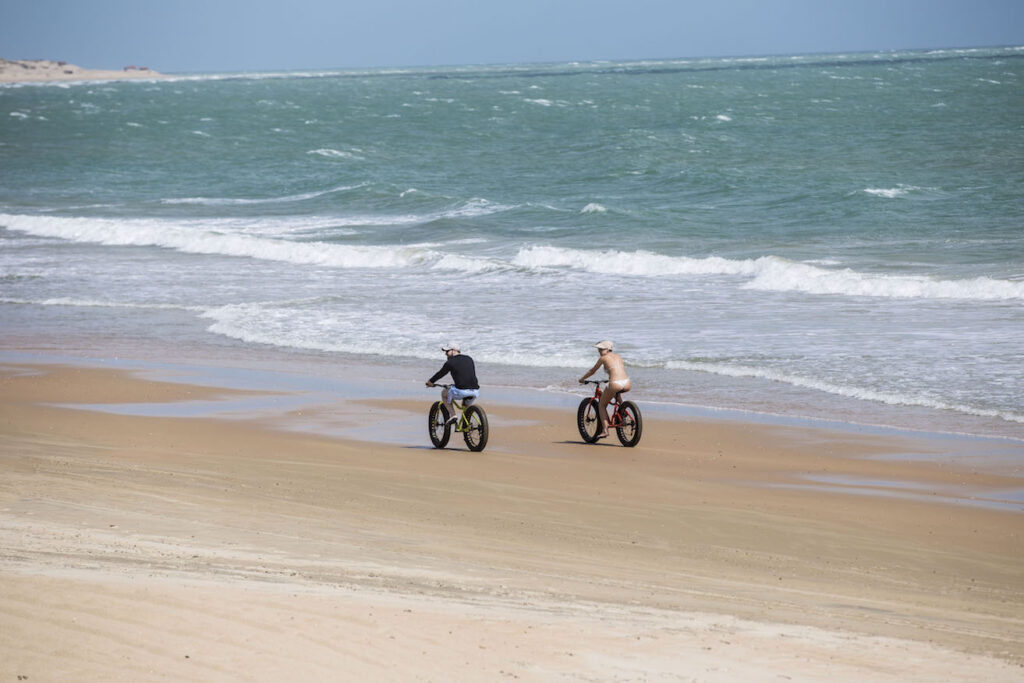
Agribusiness is also a heritage of Amontada. The municipality is home to Cohibra, a company that owns the largest hybrid coconut genome bank in the world. It sells the seeds of this product for 20 times more than the traditional coconut. "The other day Mexico took 22 carts of fruiting and fertilized seed. The coconut that costs 30 cents is selling for $6. In the last 60 days we have received 12 countries to get to know the company and this is creating another differential. I imagine agribusiness coming here, staying in this environment, eating this delicious shrimp and strolling in this sea", Roberto projects.
Multimedia
Radio: Clea Girão, commercial director of Alchymist Group


